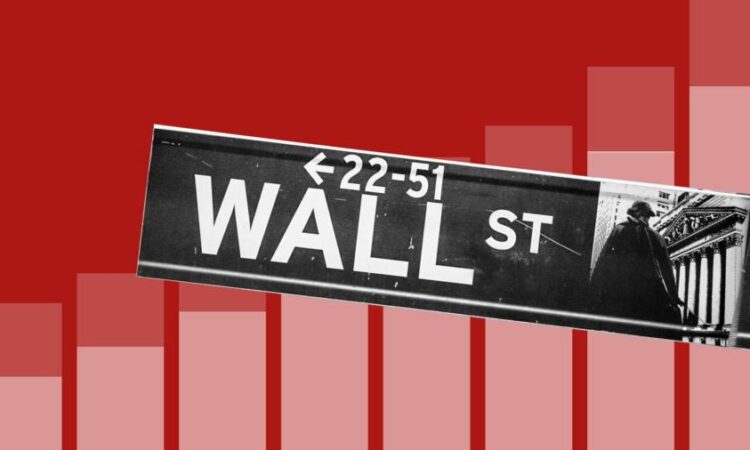
US stocks advanced on Thursday after cooler than expected inflation data boosted traders’ hopes that the Federal Reserve could tap the brakes on its tightening cycle.
The blue-chip S&P 500 rose 1.3 per cent in New York, closing at its highest level since February 15. The tech-heavy Nasdaq gained 1.9 per cent.
Traders were encouraged by data showing a cooling of the US economy, as producer prices unexpectedly fell 0.1 per cent in March, which could signal relief for consumers who have had higher operating costs passed on to them. New jobless claims data showed the number of people filing for unemployment benefits climbed more than expected to 239,000.
“There’s a lag in terms of the employment data because of how it is calculated by law when people are laid off,” said Steven Blitz, chief US economist at TS Lombard. “This might well be the first shot across the bow, the unemployment rate will start climbing faster than people are expecting, and once that happens the Federal Reserve will start cutting [interest rates].”
Minutes from the Federal Open Market Committee meeting in March, published on Wednesday, showed officials predicting a “mild recession” starting later this year, before the economy recovers over the next two years.
The yield on two-year Treasuries was flat at 3.97 per cent and 10-year notes increased 0.04 percentage points to 3.45 per cent. Yields move inversely to prices.
“With the US economy cooling and a Fed pivot not imminent, we believe the environment for equities will remain challenging in the coming months,” said Mark Haefele, chief investment officer at UBS Global Wealth Management.
Investors are weighing the effect of the data and the prospect of the economy shrinking as policymakers ready to meet next month to determine whether to plough ahead with another rate rise or pause tightening. Markets appear to have grown more confident that falling inflation will persuade the Fed to moderate the pace of interest rate rises to combat consumer price pressures.
Swaps markets predict a 70 per cent chance of a 0.25 percentage point increase over no change, according to data from Refinitiv.
The euro rose 0.5 per cent to its highest level in a year against the dollar. The dollar index, which measures the greenback against six peer currencies, fell 0.5 per cent to its lowest level since February.

In Europe, investors are pricing in a more hawkish path from the European Central Bank, with nearly a two-in-three chance of a 0.25 percentage point rise and roughly a one in three chance of a larger half-point increase.
ECB governing council member Robert Holzmann said on Wednesday that the central bank should raise rates by 0.5 percentage points because the “danger of currently doing too little and to fan inflation is bigger than the risk of doing too much”.
European industrial production data released on Thursday was higher than forecasts at 1.5 per cent, a half percentage point more than the previous month. German 10-year Bund yields rose slightly to 2.38 per cent.
Europe’s region-wide Stoxx 600 closed up 0.4 per cent, London’s FTSE 100 was up 0.2 per cent and Germany’s Dax was up 0.2 per cent. France’s Cac 40 was the standout, rising 1.1 per cent as strong earnings from LVMH boosted demand for luxury stocks.
In Asia, Hong Kong’s Hang Seng index closed up 0.2 per cent and China’s CSI 300 was down 0.7 per cent.
International oil benchmark Brent crude and US equivalent West Texas fell 1.4 per cent and 1.3 per cent, respectively, after both gaining more than 2 per cent on Wednesday.






